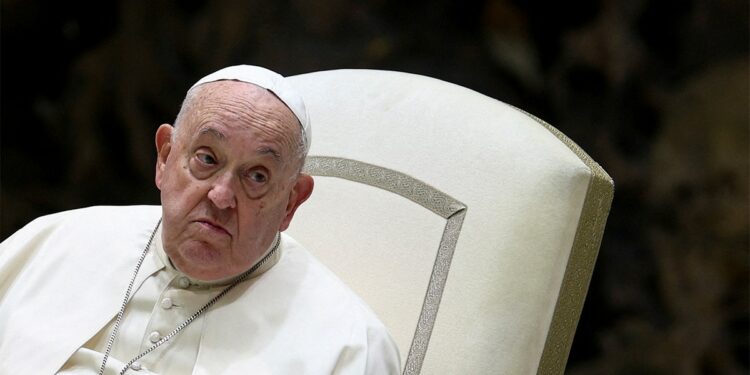Papal diplomacy, celebrated for its fairness and moral influence, faces growing challenges in dealing with the complex relationship between the US and Cuba. The Vatican has historically acted as a mediator during key geopolitical moments, such as the Cuban Missile Crisis in 1962 and the US-Cuba reconciliation in 2014. However, recent changes under the Trump and Biden administrations, along with Cuba’s internal issues, reveal the difficulties and limits of this unique approach to diplomacy.
Shifting sands of US-Cuba policy
President Donald Trump’s decision to reverse the Biden administration’s late-term move to remove Cuba from the US list of state sponsors of terrorism shows how fragile diplomatic progress can be. By re-designating Cuba as a terrorism-sponsoring state, Trump overturned a significant gesture by his predecessor aimed at building goodwill. This decision reinstated strict sanctions on Cuba, which was already struggling economically and erased substantial progress achieved through papal intervention.
The Biden administration’s earlier decision was motivated by Cuba’s agreement to release 553 prisoners, seen as a step toward easing long-standing economic and political tensions. However, Trump’s reversal undermined these efforts and raised concerns about the consistency of US foreign policy.
The Catholic Church, which played a key role in negotiating the prisoner release, found its influence diminished as the broader diplomatic efforts unravelled. This shift showed the challenges the Vatican faces in mediating conflicts where domestic politics in major powers take precedence over international agreements.
Cuba’s response and the role of the Vatican
According to Reuters, Cuban President Miguel Díaz-Canel criticised Trump’s decision as an “act of mockery and abuse,” reflecting the deep frustration in Havana over US policies. The release of prisoners, intended as a gesture of goodwill and reform, was suspended amid growing uncertainty, weakening the moral and political impact of papal diplomacy. Despite these challenges, the Vatican continued to advocate for clemency and reconciliation.
Pope Francis praised the initial prisoner release as a “gesture of great hope,” tying it to the spirit of the 2025 Holy Year, a time often used by popes to call for mercy and unity. Behind-the-scenes efforts by Cardinal Sean O’Malley also highlighted the Vatican’s dedication to fostering dialogue. However, the absence of significant results from these interventions has raised questions about the effectiveness of papal diplomacy in such a highly polarised situation.
Papal diplomacy and the US-Cuba dialogue
The Vatican’s involvement in US-Cuba relations has a long history, going back to the Cuban Missile Crisis. According to the Associated Press, Pope John XXIII’s appeals for peace during the 1962 standoff between the US and the Soviet Union are widely credited with helping to prevent a nuclear disaster.
By sending identical messages to John F Kennedy and Nikita Khrushchev, Pope John XXIII positioned the Holy See as a neutral mediator, using its moral authority to reduce tensions. This tradition continued with Pope Francis’ significant role in the 2014 detente, which led to the restoration of diplomatic ties under the Obama administration.
However, the current situation is a sharp contrast to these past successes. The deeply divided political climate in the US, combined with Cuba’s internal struggles, has made it difficult for papal efforts to achieve meaningful progress. Unlike the clear moral urgency of preventing nuclear war or reopening diplomatic channels, today’s challenges—such as economic sanctions, human rights issues and political dissent—are more complex, limiting the Vatican’s ability to mediate effectively.
Domestic politics and the erosion of diplomatic gains
The shifting US policies toward Cuba—from Obama’s detente to Trump’s hardline approach, followed by Biden’s partial reversal—have heavily influenced the Vatican’s ability to mediate. These policy changes often reflect the impact of domestic political dynamics, especially the influence of Cuban American lawmakers and voters in Florida, who strongly oppose the Cuban government.
As per an NBC News report, politicians like Senator Ted Cruz and Representatives Mario Díaz-Balart, Maria Elvira Salazar and Carlos Gimenez have consistently resisted any easing of sanctions, viewing such actions as betrayals of Cuban dissidents and exiles.
This domestic political focus weakens the Vatican’s efforts to promote a unified moral appeal for reconciliation. The Church’s advocacy for lifting the economic embargo and encouraging dialogue is frequently overshadowed by partisan disputes limiting its role in shaping US policy toward Cuba.
Broader implications for papal diplomacy
The challenges facing papal diplomacy in the US-Cuba conflict highlight broader limitations in the Vatican’s approach to international mediation. The Holy See’s reliance on moral authority and soft power often falls short when dealing with conflicts rooted in hard power dynamics and deep political divides. The Vatican’s history of securing prisoner clemency, such as past releases during papal visits to Cuba, risks being seen as merely symbolic when larger political issues remain unresolved.
Figures like Cardinal Sean O’Malley, as noted by the Associated Press, have played key roles in papal diplomacy by delivering messages between Pope Francis and leaders in Washington and Havana. These efforts emphasise the Vatican’s dedication but also expose its vulnerability to changes in leadership and policies in other nations.
Similarly, now-disgraced ex-Cardinal Theodore McCarrick was involved in the Vatican-brokered US-Cuba detente of 2014, which led to the restoration of diplomatic ties. Such examples reveal the personal and sometimes precarious nature of the Vatican’s mediation efforts.
A test of resilience
The ongoing challenges in US-Cuba relations test the resilience and flexibility of papal diplomacy. The Vatican must wade through this complex situation by balancing its moral commitments with the practical realities of international politics.
Pope Francis’s focus on hope and reconciliation provides direction, but achieving these goals depends on the Holy See’s ability to address the obstacles posed by polarised politics and deep-rooted interests.
Papal diplomacy’s greatest challenge in this context is turning symbolic gestures into meaningful progress. Moving forward will require not just patience and persistence but also a clear emphasis on peace, justice and human dignity—values central to the Vatican’s efforts.
Source link : http://www.bing.com/news/apiclick.aspx?ref=FexRss&aid=&tid=67907e28b5fa4d4687012c0b4af6e606&url=https%3A%2F%2Fwww.firstpost.com%2Fworld%2Fis-trumps-cuba-decision-a-sign-of-vaticans-declining-influence-in-diplomacy-13853882.html&c=5159362459317412246&mkt=en-us
Author :
Publish date : 2025-01-21 16:02:00
Copyright for syndicated content belongs to the linked Source.








